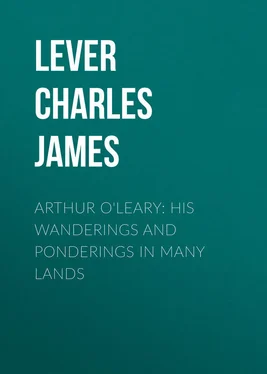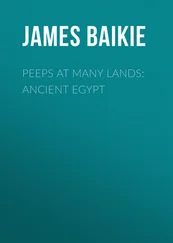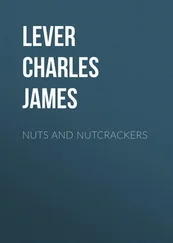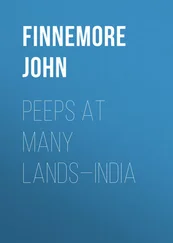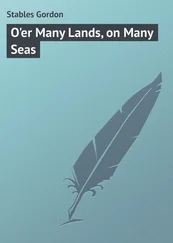Charles Lever - Arthur O'Leary - His Wanderings And Ponderings In Many Lands
Здесь есть возможность читать онлайн «Charles Lever - Arthur O'Leary - His Wanderings And Ponderings In Many Lands» — ознакомительный отрывок электронной книги совершенно бесплатно, а после прочтения отрывка купить полную версию. В некоторых случаях можно слушать аудио, скачать через торрент в формате fb2 и присутствует краткое содержание. Издательство: Иностранный паблик, Жанр: literature_19, foreign_antique, foreign_prose, на английском языке. Описание произведения, (предисловие) а так же отзывы посетителей доступны на портале библиотеки ЛибКат.
- Название:Arthur O'Leary: His Wanderings And Ponderings In Many Lands
- Автор:
- Издательство:Иностранный паблик
- Жанр:
- Год:неизвестен
- ISBN:нет данных
- Рейтинг книги:3 / 5. Голосов: 1
-
Избранное:Добавить в избранное
- Отзывы:
-
Ваша оценка:
- 60
- 1
- 2
- 3
- 4
- 5
Arthur O'Leary: His Wanderings And Ponderings In Many Lands: краткое содержание, описание и аннотация
Предлагаем к чтению аннотацию, описание, краткое содержание или предисловие (зависит от того, что написал сам автор книги «Arthur O'Leary: His Wanderings And Ponderings In Many Lands»). Если вы не нашли необходимую информацию о книге — напишите в комментариях, мы постараемся отыскать её.
Arthur O'Leary: His Wanderings And Ponderings In Many Lands — читать онлайн ознакомительный отрывок
Ниже представлен текст книги, разбитый по страницам. Система сохранения места последней прочитанной страницы, позволяет с удобством читать онлайн бесплатно книгу «Arthur O'Leary: His Wanderings And Ponderings In Many Lands», без необходимости каждый раз заново искать на чём Вы остановились. Поставьте закладку, и сможете в любой момент перейти на страницу, на которой закончили чтение.
Интервал:
Закладка:
Charles James Lever
Arthur O'Leary: His Wanderings And Ponderings In Many Lands
When some years ago we took the liberty, in a volume of our so-called “Confessions,” to introduce to our reader’s acquaintance the gentleman whose name figures in the title page, we subjoined a brief notice, by himself, intimating the intention he entertained of one day giving to the world a farther insight into his life and opinions, under the title of “Loiterings of Arthur O’Leary.”
It is more than probable that the garbled statement and incorrect expression of which we ourselves were guilty respecting our friend had piqued him into this declaration, which, on mature consideration, he thought fit to abandon. For, from that hour to the present one, nothing of the kind ever transpired, nor could we ascertain, by the strictest inquiry, that such a proposition of publication had ever been entertained in the West-End, or heard of in the “Row.”
The worthy traveller had wandered away to “pastures new,” heaven knows where! and, notwithstanding repeated little paragraphs in the second advertizing column of the “Times” newspaper, assuring, “A. O’L. that if he would inform his friends where a letter would reach, all would be forgiven,” &c. the mystery of his whereabouts remained unsolved, save by the chance mention of a north-west passage traveller, who speaks of a Mr. O’Leary as having presided at a grand bottle-nosed whale dinner in Behring’s Straits, some time in the autumn of 1840; and an allusion, in the second volume of the Chevalier de Bertonville’s Discoveries in Central Africa, to an “Irlandais bien original,” who acted as sponsor to the son and heir of King Bullanullaboo, in the Chieckhow territory. That either, or indeed, both, these individuals resolved themselves into our respected friend, we entertained no doubt whatever; nor did the information cause us any surprise, far less unquestionably, than had we heard of his ordering his boots from Hoby, or his coat from Stultz.
Meanwhile time rolled on – and whether Mr. O’Leary had died of the whale feast, or been eaten himself by his godson, no one could conjecture, and his name had probably been lost amid the rust of ages, if certain booksellers, in remote districts, had not chanced upon the announcement of his volume, and their “country orders” kept dropping in for these same “Loiterings,” of which the publishers were obliged to confess they knew nothing whatever.
Now, the season was a dull one; nothing stirring in the literary world; people had turned from books, to newspapers; a gloomy depression reigned over the land. The India news was depressing; the China worse; the French were more insolent than ever; the prices were falling under the new tariff; pigs looked down, and “Repealers” looked up. The only interesting news, was the frauds in pork, which turned out to be pickled negroes and potted squaws. What was to be done? A literary speculation at such a moment was preposterous; for although in an age of temperance, nothing prospered but “Punch.”
It occurred to us, “then pondering,” as Lord Brougham would say, that as these same “Loiterings” had been asked for more than once, and an actual order for two copies had been seen in the handwriting of a solvent individual, there was no reason why we should not write them ourselves. There would be little difficulty in imagining what a man like O’Leary would say, think, or do, in any-given situation. The peculiarities of his character might, perhaps, give point to what dramatic people call “situations,” but yet were not of such a nature as to make their portraiture a matter of any difficulty.
We confess the thing savoured a good deal of book-making. What of that? We remember once in a row in Dublin, when the military were called out, that a sentinel happened to have an altercation with, an old woman of that class, for which the Irish metropolis used to have a patent, in all that regards street eloquence and repartee. The soldier, provoked beyond endurance, declared at last with an oath, “that if she didn’t go away, he’d drive his bayonet through her.” “Oh, then, the devil thank you for that same,” responded the hag, “sure, isn’t it your trade?” Make the application, dear reader, and forgive us for our authorship to order.
Besides, had we not before us the example of Alexandre Dumas, in France, whose practice it is to amuse the world by certain Souvenirs de “Voyage,” which he has never made, not even in imagination but which are only the dressed-up skeletons of other men’s rambles, and which he buys, exactly as the Jews do old uniforms and court suits, for exportation to the colonies. And thus while thousands of his readers are sympathizing with the suffering of the aforesaid Alexandre, in his perilous passage of the great desert, or his fearful encounter with Norwegian wolves, little know they that their hero is snugly established in his “entresol” of the “Rue d’Alger,” lying full length on a spring-cushioned sofa, with a Manilla weed on his lip, and George Sand’s last bulletin of wickedness, half cut before him. These “Souvenirs de Voyage” being nothing more than the adventures and incidents of Messrs. John Doe and Richard Doe, paragraphed, witticized, and spiced for public taste, by Alexandre Dumas, pretty much as cheap taverns give “gravy” and “ox-tail” – the smallest modicum of meat, to the most high-seasoned and hot-flavoured condiments.
If, then, we had scruples, here was a precedent to relieve our minds – here a case perfectly in point, at least so far as the legitimacy of the practice demanded. But, unhappily, it ended there: for although it may be, and indeed is, very practicable for Monsieur Dumas, by the perfection of his “cuisine,” to make the meat itself a secondary part of the matter; yet do we grievously fear that a tureen full of “O’Leary,” might not be an acceptable dish, because there was a bone of “Harry Lorrequer” in the bottom.
With all these pros and cons our vain-glorious boast to write the work in question stared us suddenly in the face; and, really, we felt as much shame as can reasonably be supposed to visit a man, whose countenance has been hawked about the streets, and sold in shilling numbers. What was to be done? There was the public, too; but, like Tony Lumpkin, we felt we might disappoint the company at the Three Jolly Pigeons – but could we disappoint ourselves?
Alas! there were some excellent reasons against such a consummation. So, respected reader, whatever liberties we might take with you, we had to look nearer home, and bethink us of ourselves. After all – and what a glorious charge to the jury of one’s conscience is your after all! – what a plenary indulgence against all your sins of commission and omission! – what a makepeace to self-accusation, and what a salve to heartfelt repinings! – after all, we did know a great deal about O’Leary: his life and opinions, his habits and haunts, his prejudices, pleasures, and predilections: and although we never performed Boz to his Johnson, still had we ample knowledge of him for all purposes of book-writing; and there was no reason why we should not assume his mantle, or rather his Macintosh, if the weather required it.
Having in some sort allayed our scruples in this fashion, and having satisfied our conscience by the resolve, that if we were not about to record the actual res gesto of Mr. O’Leary, neither would we set down anything which might not have been one of his adventures, nor put into his mouth any imaginary conversations which he might not have sustained; so that, in short, should the volume ever come under the eyes of the respected gentleman himself, considerable mystification would exist, as to whether he did not say, do, and think, exactly as we made him, and much doubt lie on his mind that he was not the author himself.
Читать дальшеИнтервал:
Закладка:
Похожие книги на «Arthur O'Leary: His Wanderings And Ponderings In Many Lands»
Представляем Вашему вниманию похожие книги на «Arthur O'Leary: His Wanderings And Ponderings In Many Lands» списком для выбора. Мы отобрали схожую по названию и смыслу литературу в надежде предоставить читателям больше вариантов отыскать новые, интересные, ещё непрочитанные произведения.
Обсуждение, отзывы о книге «Arthur O'Leary: His Wanderings And Ponderings In Many Lands» и просто собственные мнения читателей. Оставьте ваши комментарии, напишите, что Вы думаете о произведении, его смысле или главных героях. Укажите что конкретно понравилось, а что нет, и почему Вы так считаете.
